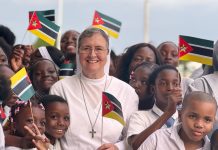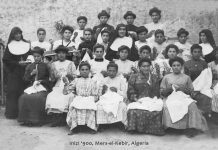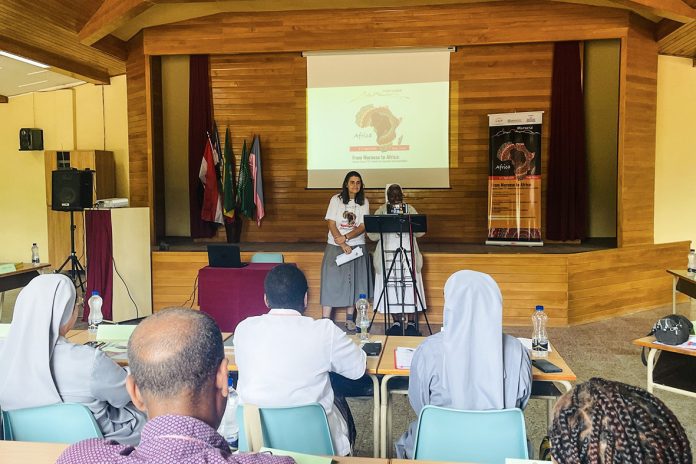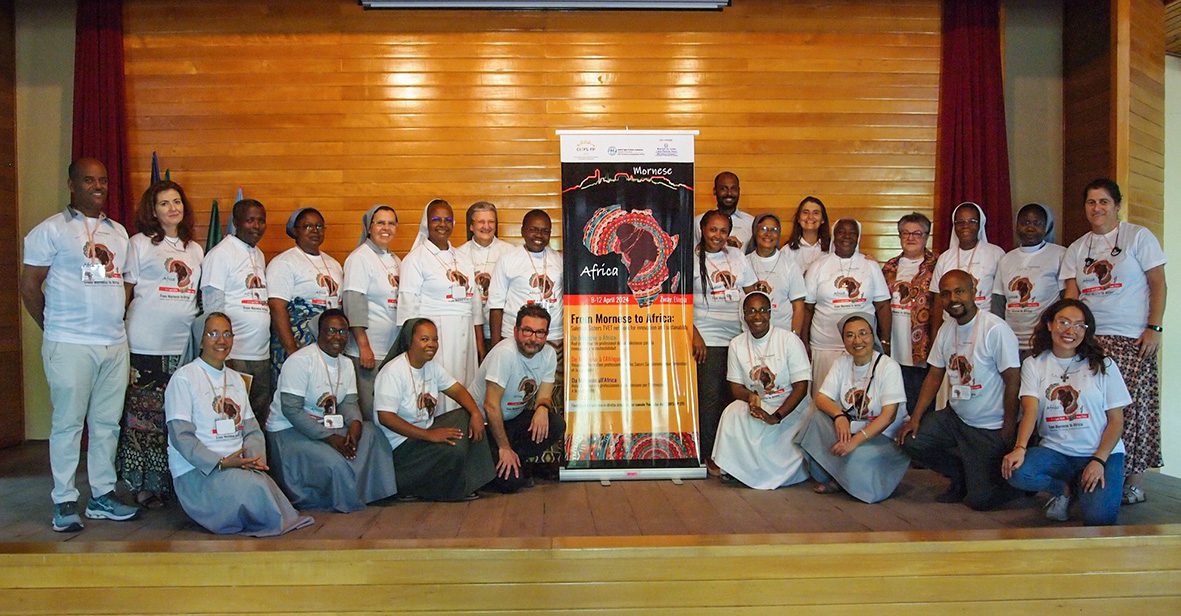Zway (Ethiopia).From 8 to 12 April 2024, Mary Help College of the Daughters of Mary Help of Christians of Mary Help of Christians Preprovince (AES) held in Zway the event “From Mornese to Africa: Salesian Sisters TVET network for innovation and sustainability“, with the aim of setting up an international TVET (Technical and Vocational Education and Training) network to activate stable partnerships for the training of young people in Africa, also by exploiting new European and national opportunities.
The Daughters of Mary Help of Christians, coordinators of professional Centers of African Provinces and Preprovinces, and lay collaborators of the AES Preprovince, the representatives of CIOFS-FP ETS: the President, Sister Manuela Robazza and her team; the General Councilor for the Missions, Sister Ruth del Pilar Mora; Sister Chanda Nsofwa, collaborator of the Youth Ministry Sector and Referent for School/FP for CIAM; Sister Yvette Badini, Provincial of Mother of God Province (AFO) and President of the CIAM Inter-Disciplinary Conference; Sister Marie Dominique Mwema Mukato, Superior of Mary Help of Christians Preprovince (AES).
Welcoming the participants, Sister Marie Dominique highlighted the importance of vocational training in response to the cry of young people seeking work in Africa and other parts of the world. This is because work is the way for a dignified life and for the development of every society, which has the duty to give a better future to young people.
Placing educational work in a broader perspective, Sister Ruth started from an overview of the presence of the FMA in the world. She indicated the inspiration of Don Bosco and Mother Mazzarello to be on the side of the poorest, identifying their potential and offering them formal and informal education, to form good Christians and honest citizens. In this wake, the reflection on the PF Centers in Ethiopia and other African countries has continued for 40 years.
In turn, Mons. Abraham Desta, Bishop of the Vicariate of Meki, thanked and encouraged all participants to remain united in seeking the best ways to ensure a future for young people. He reaffirmed the importance of involving girls and women through an empowerment that leads them to be equal in society.
The program provided for the sharing of good practices starting from the experience of the professional centers of the African Provinces, with the respective data on the courses offered, attendance, quality, and post diploma employment. Among the challenges highlighted was the importance of working on the quality of the educational proposal, which requires training for educators suitable for the Professional School, according to the demands of the world of work.
Always to ensure quality, also highlighted was the need to have stability of staff in PF Centers. Significant was the testimony of Sister Silvana Rasello of CIOFS Piemonte, who said: “this year I have 50 years of religious life and 49 in the Professional School.”
In sharing good practices, some alumni of Mary Help College brought their testimony about how, through the Professional School, they had the opportunity to learn a trade to earn a living and support their family. In addition to finding a job for themselves, some told how they helped others open small workshops with the help of “Global Solidarity Fund”. All the more reason to wager on Professional Schools in Africa.
They were intense and rich days of study, discussion, research, and study in which, in the style of synodality and fraternity, we began to create a network, starting from the sharing of the same model of professional formation. To give orientation to the reflection on TVET, government authorities and stakeholders operating in Ethiopia were invited. This gave the opportunity to deepen and dialogue on a new road map for TVET in Ethiopia, challenges and opportunities, TVET as an effective response for young people, especially for the most vulnerable, sustainability and employability in TVET, economic development. On this last aspect, Sister Alessandra Smerilli, Secretary of the Dicastery for the Service of Integral Human Development, in online connection, addressed words of encouragement to the assembly, assuring also the support of the Holy Father.
In order to facilitate strategic marketing plans and enhance the brand of the CIAM Professional School Network in a unified manner, work has also been carried out on the Identity Card of the Salesian Sisters’ Professional Formation. This would make its values visible to the outside world, together with the vision of formation on a shared idea of networking. There are some open issues that require the opinion and consent of the authorities to continue on this journey.
The meeting in Zway is part of the journey of reflection and study promoted by the FMA Institute with the African Provinces on Schools and Professional Centers in Africa. It has been carried out in the various years by the Youth Ministry Sector on various themes, having always at heart the educational commitment, potential and future prospects of the works of the School and PF in Africa and Madagascar: 2003, Makuyu, Kenya; 2006, Nairobi, Kenya; 2008 Bingerville, Ivory Coast; 2010 Yaonde, Cameroon; 2012 Namaacha, Mozambique; 2017 Makuyu, Kenya. The continuation of the journey, with a meeting in 2022 and several online meetings in 2023, is in response to the mandate of Mother Yvonne Reungoat at CIOFS in 2021, “I ask you to give life to the international network of Salesian professional formation”.
Following the 2nd priority choice of GC XXIV of the FMA Institute on missionary synodality, the reflection on School/Centers of Professional Formation in CIAM is an Inter-sector commitment. It is lived with responsibility, openness to listening, and accompaniment in the family spirit, to witness to the prophecy of communion for growth in co-responsibility, subsidiarity, and a planning mentality.
The reflection carried out during the event on networking at CIAM level requires each African Province to make a further commitment that consists in a deeper study of reality, together with the needs of the territory.
The hope is to continue to nourish “the joy and wonder of the call to be missionary communities: Mornese in outreach; communities that proclaim Jesus with their life, that take on the challenges of change and bear witness to evangelical values, that take on the various forms of poverty present in the existential and geographical peripheries.” (FMA GC XXIV n.26)





















